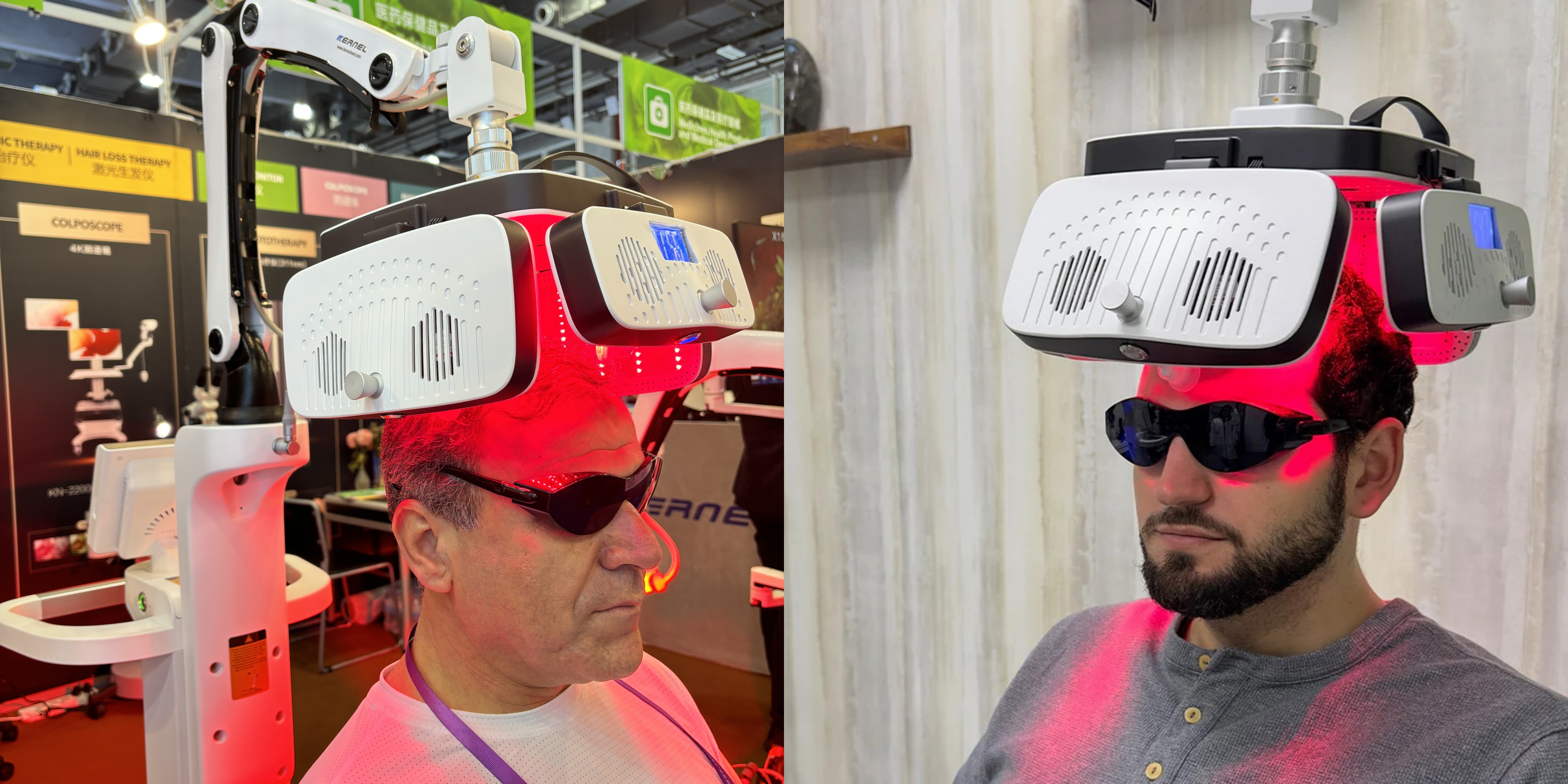The Truth About Hair Loss in 2024: Expert Dermatologist Answers and Effective Solutions
1. Early Symptoms of Hair Loss
Q: Recently, I've noticed more hair falling out while washing. What are the early symptoms of hair loss?
A: Hair loss can vary widely. Normal shedding during brushing and washing can occur, but if you notice a significant increase, it may indicate pathological hair loss. Common types include:
Androgenetic Alopecia: Receding hairline or thinning at the crown.
Alopecia Areata: Sudden patchy hair loss.
Telogen Effluvium: Losing more than 100 hairs a day, leading to thinning.
2. Symptoms of Female Hair Loss
Q: What are the symptoms of hair loss in women?
A: Female pattern hair loss typically presents as widening part lines and greasy scalp. Patients may also experience seborrheic dermatitis, characterized by itching and increased dandruff.
3. Causes of Patchy Hair Loss
Q: What causes patchy hair loss?
A: Alopecia areata is a common cause, often related to genetic, immune, and environmental factors. If you experience this, seek medical attention for a proper diagnosis.
4. Effectiveness of Aerobic Exercise
Q: Can aerobic exercise treat hair loss?
A: While aerobic exercise promotes blood circulation, it doesn't directly treat hair loss. Professional diagnosis and treatment are essential.
5. Causes of Postpartum Hair Loss
Q: What causes hair loss after childbirth?
A: Postpartum hair loss is often due to hormonal changes, affecting 35%-45% of women 2-6 months after delivery. A healthy lifestyle can aid recovery.
6. Hormonal Imbalance and Hair Loss
Q: How can hormonal imbalance-induced hair loss be treated?
A: Correcting hormonal imbalances is crucial. Consult a healthcare professional for accurate diagnosis and treatment options.
7. Does Cutting Hair Help with Hair Loss?
Q: Can cutting my hair help reduce hair loss?
A: Cutting hair does not affect pathological hair loss, but it may help manage physiological shedding.
8. Vitamin Deficiency and Hair Loss
Q: Can a lack of trace elements cause hair loss?
A: Deficiencies in vitamins A, D, zinc, and iron can lead to hair loss. Blood tests are recommended for diagnosis.
9. Effectiveness of Finasteride
Q: Is finasteride effective for seborrheic alopecia?
A: Yes, finasteride is the first-choice medication for treating androgenetic alopecia, with significant clinical results.
10. Shampoo Frequency for Seborrheic Alopecia
Q: How often should I wash my hair if I have seborrheic alopecia?
A: Typically, 3-4 times a week is advisable, but frequency should be adjusted based on personal circumstances.
11. Ginger for Hair Loss Treatment
Q: Can ginger treat hair loss?
A: Currently, there is no scientific evidence supporting ginger as an effective treatment for hair loss; direct application may cause irritation.
12. Causes of Hair Loss in Children
Q: Why is my 4-year-old losing hair?
A: Hair loss in children can result from various factors; it’s advisable to seek medical evaluation promptly.
13. Which Specialty for Hair Loss?
Q: Which specialty should I consult for hair loss?
A: It’s recommended to see a dermatologist for specialized diagnosis and treatment of hair loss.
14. White Fluff After Alopecia Areata
Q: What does white fluff growing in alopecia areas mean?
A: This is a positive sign indicating effective treatment and follicle recovery.
15. Fruits That Prevent Hair Loss
Q: Are there fruits that can prevent hair loss?
A: While fruits are beneficial for health, they do not specifically prevent hair loss.
16. Stem Cell Therapy for Hair Loss
Q: Can stem cells treat hair loss?
A: Stem cell therapy shows potential but is not yet widely applied in practice.
17. Methods for Hair Loss Testing
Q: What tests are needed for hair loss?
A: Pull tests and dermatoscopy are standard examinations, tailored based on individual conditions.
18. Fungal Infections and Hair Loss
Q: What should I do for hair loss due to fungal infections?
A: Antifungal treatment is necessary, along with maintaining personal hygiene.
19. Genetic Probability of Hair Loss
Q: Is hair loss hereditary?
A: Some forms of hair loss have a genetic component, with probabilities of 50%-70% for androgenetic alopecia and 25% for alopecia areata.
20. Eyebrow Loss from Alopecia Areata
Q: Will eyebrows lost due to alopecia areata grow back?
A: Yes, they can regrow with appropriate treatment.


